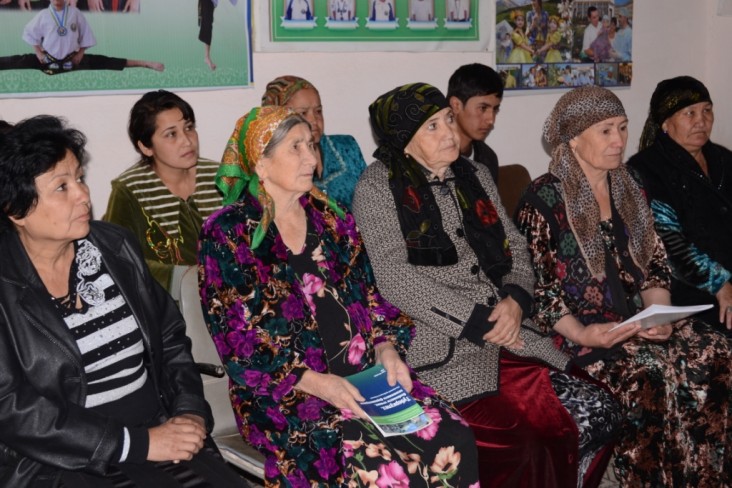
Sept. 2014—Although significant progress has been made on tuberculosis (TB) detection and treatment in Uzbekistan in recent years, TB incidence is estimated at 128 per 100,000 people a year—the fifth highest in the European region. In addition, 2010 World Health Organization (WHO) estimates show that case detection remains low at 48 percent compared with the organization’s recommended level of 70 percent.
In November 2013, USAID sponsored a study program to Atlanta, Georgia, for Uzbekistan health officials to introduce them to U.S. best practices in TB treatment. The group met with a number of U.S. organizations that shared innovative approaches for TB surveillance and prevention as well as for social mobilization and education.
Since returning from the study tour, Rustam Yuldashev, head of the health care department of the Kashkadarya region in southern Uzbekistan, has put his newly developed skills and experience to work for his home community. TB recovery rates in the region are 93 percent, however, the early detection level remains under 20 percent.
“This study tour made me look differently at the problem of TB prevention and treatment in my oblast,” said Yuldashev.
He began by securing government support for his plans to involve community members in educating his community. He also secured the support of village elders, members of neighborhood committees, and rural doctors to educate target groups on TB symptoms and the importance of seeking treatment from local health facilities. Yuldashev also developed leaflets for use in outreach efforts, and improved collection and transportation of clinical samples from rural health facilities to regional laboratories.
These efforts have already resulted in higher TB detection rates. Only three cases of resistant forms of tuberculosis were detected in the Kashkadarya region in the nine months prior to Yuldashev’s efforts. With Yuldashev’s new system in place, 49 patients with resistant forms were detected over a one-month period in December 2013 alone.
Yuldashev credits this success to his USAID study tour. "Given these results, I am planning to undertake the same activities in Kamashi, another district of our region," he said.
LINKS
Follow @USAIDCtrAsia, on Facebook







Comment
Make a general inquiry or suggest an improvement.